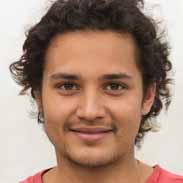Sociology SY3: Understanding politics key writers – Flashcards
Unlock all answers in this set
Unlock answersquestion
Manuel Castells
answer
Says power relationships are the foundations of society. Those in power create norms and values and shape them to their own interests. However, wherever there is power there is also counter power.
question
Stephen Lukes
answer
Defined power by saying power exists when A gets B to do something that B would not otherwise have done. He also outlined three main ways people use power as Decision making, Agenda management and Wish manipulation.
question
Max Weber (on power)
answer
Defined power as the probability of persons carrying out their own will even when opposed by others. Also outlined types of power such as coercion and authority which can be divided into legal rational, charismatic and traditional.
question
Abraham Lincoln
answer
A US president who said that democracy is a government of the people, by the people and for the people.
question
Thomas Jefferson
answer
A democracy is nothing more than mob rule, where 51% of people may take away the rights of the other 49%.
question
An Sung Su Chi
answer
The leader of a movement against the Junta rule in Burma.
question
Kim Jong-un
answer
Leader of North Korea, which is an example of a totalitarian state.
question
Francis Flukyama
answer
After the Berlin wall fell there was a spread of democracy because there was no longer any credible alternative to capitalism and representative democracy.
question
Thomas Hobbs
answer
A political philosopher who pessimistically thought that humans are naturally selfish. He said without control life would be nasty, brutal and short.
question
Max Weber (on bureaucracy's)
answer
Defined bureaucracy as the legal rational basis of state institutions and identified features of bureaucracy such as written rules, division of labour, hierarchy of authority, qualified people and written communications. He saw this as a threat to individual freedom.
question
Winston Churchill
answer
Conservative wartime leader who was defeated by Labour in 1945 when the warfare state gave way to the welfare state.
question
Margaret Thatcher
answer
British politician who became Prime Minister in 1979 and famously said 'I am not a consensus politician. I am a conviction politician' and was nicknamed the Iron lady. She reduced taxes for the wealthy, removed state subsidies from companies and sold off publicly owned industries such as the National coal board, the Water board and National rail.
question
Ronald Ragen
answer
USA president who was in power the same time as Maggie Thatcher- he is said to be her political soulmate as he exercised similar policies in the US as she did in the UK.
question
Tony Blaire
answer
Labour leader who became Prime Minister in 1997 after creating 'New Labour' who's ideology was said to be the third way. Essentially, it was Labour moved toward the right wing.
question
Edmund Burke
answer
A Conservative who said we should respect traditions as they embody the collective wisdom of all the generations that have come before us.
question
Stephen Fielding
answer
Argues that political parties perform an important role in representative democracies because they 'aggregate interests' which means they draw together incoherent ideas and shape them into a more coherent program of government.
question
Herbert Samuels
answer
Argues that without political parties to organise them, the electorate would become a mob.
question
Gerry Stoker
answer
Says that a key feature of British politics is that a lot of people are alienated from it's mainstream practices, creating a mood of 'anti-politics'.
question
Nigel Farage
answer
Leader of UKIP who got 12.6 of the votes in May 2015 and most votes in the most recent European election. He describes this as a 'political earthquake'.
question
Hansard Society
answer
In 2010 this group conducted a study and found that 2/3 of the population could be described as 'anti-politics' as they expressed negative views toward the system.
question
Robert Dahl
answer
A pluralist who says that there are many different centers of power, none of which can be wholly sovereign. He studied a USA town called newhaven and concluded
question
Karl Marx
answer
Creator or Marxism, a left wing theory that believes the foundation of society is it's economic base and that power comes from the ownership and control of the means of production and therefore is concentrated in the hands of the minority 'ruling class'
question
John Dewey
answer
Said that politics is the shadow cast on society by big business
question
Ralph Miliband
answer
Coined 'Instrumental Marxism' who claimed that politicians are puppets of the rich through lobbying and campaign funding. He also noted how the political and economic elites share similar socioeconomic backgrounds.
question
Nicos Poulantez
answer
Coined 'Structuralist Marxism' which claims that there is a certain degree of autonomy of the state, like a dog on a long lead. Capitalism is balanced by interests of the working class and moderate welfare is necessary to re balance wealth.
question
Pareto and Mosca
answer
Classical elite theorists who believe we live in an Oligarchy, with there always being a class that rules and a class that is ruled.
question
Robert Michels
answer
Used the phrase 'Iron law of Oligarchy' to describe how in every system a small group will always become leaders. Even after revolutions all that changes is the faces of the leaders.
question
C Wright Mills
answer
Power elite theorist who thinks that American democracy is bad and powerful people in politics and business all have common interests
question
Hywel Williams
answer
Explained how the 'revolving door' where politicians, rich business owner and military elites all swap roles also happens in the UK.
question
Talcott Parsons
answer
A functionalist who said society develops collective goals and is held together by mostly shared values, and leaders are necessary to collaborate these.



